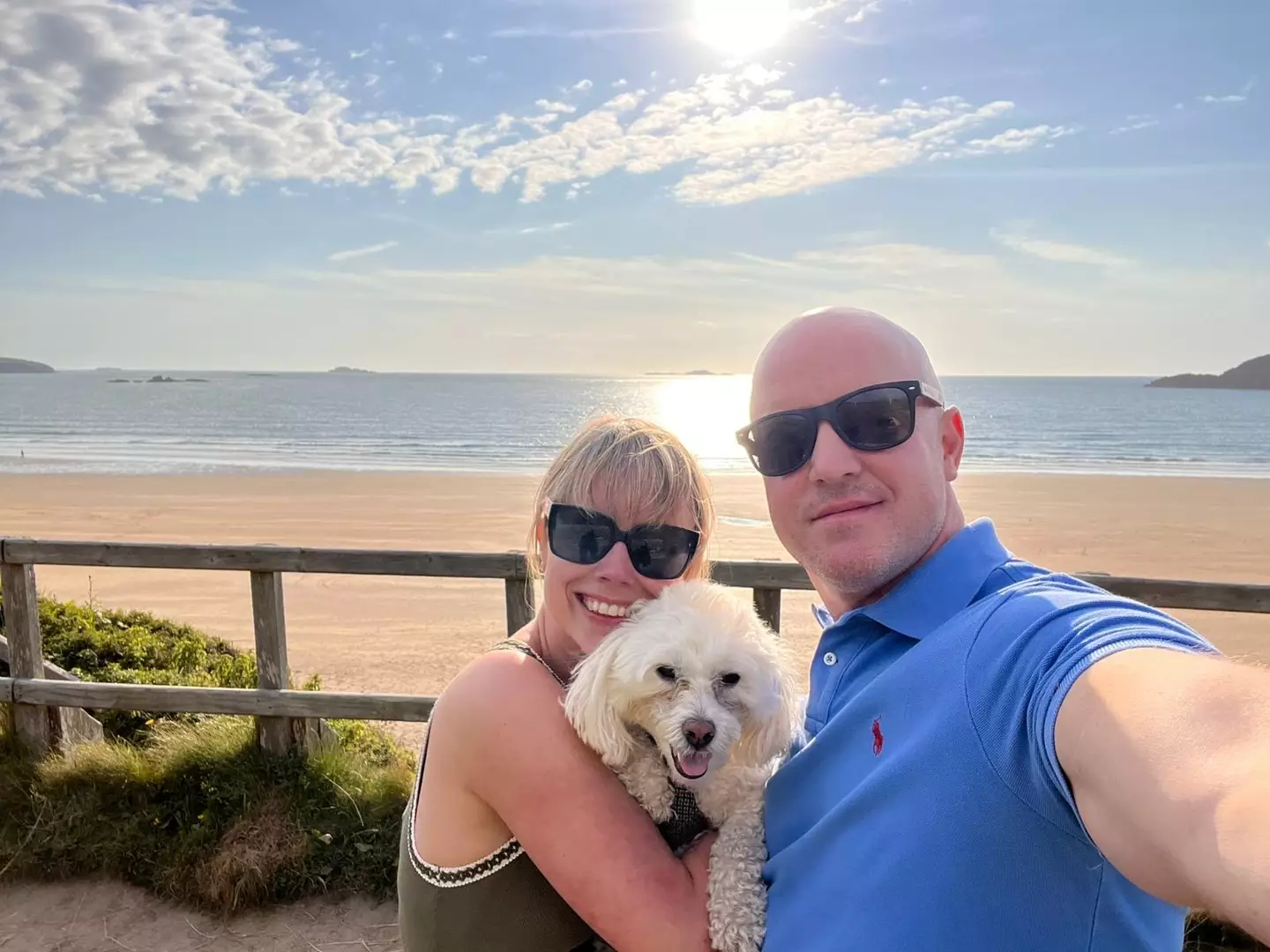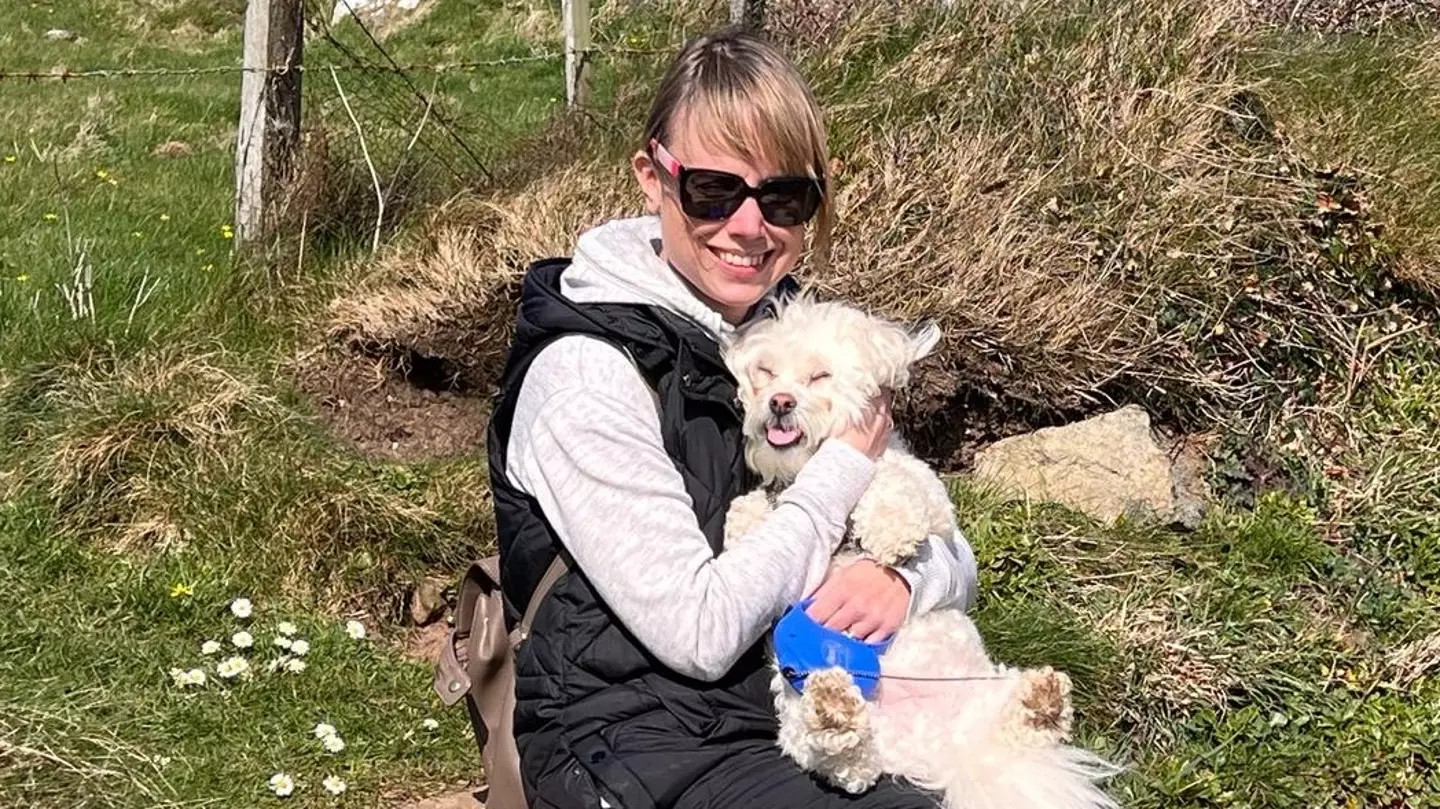Rachel Reed, a woman who once believed she was “cancer proof,” received an unexpected diagnosis of stage four bowel cancer.
Despite maintaining an active lifestyle and taking care of her health, Rachel’s healthy habits did not prevent the cancer, and she was diagnosed in 2018 at the age of 33.
Following two major surgeries and chemotherapy, Rachel was declared cancer-free in April 2020 and has been focused on recovery and rebuilding her life ever since.
Now 40, Rachel recalls the lengthy process she endured to get her illness properly investigated. Initially, she was treated for IBS (irritable bowel syndrome), with doctors speculating that her symptoms might stem from psoriasis medication, a biological treatment, or a potential food intolerance.

Rachel, who resides in Pontypridd with her husband Dean and their dog Sheldon, shared with Cancer Research Wales, “I didn’t recognise any of the symptoms. With the tiredness and the stomach pains, I wasn’t aware they were a red flag.”
She continued, “Because I was quite active, I was a gym-goer, ate my five fruit and veg a day, I didn’t drink, didn’t smoke, I thought I was quite low risk of having anything like cancer. It didn’t even cross my mind so when they told me I was in utter shock.”
Rachel is eager to raise awareness by sharing her story, aiming to support Cancer Research Wales in their mission to transform lives, acknowledging that her survival was aided by advancements in medical treatments and interventions.
“If I can prevent one person from being diagnosed late as I did then I am happy,” she expressed.
“There are a lot of young people not aware that it can happen to them even if they are fit, healthy and young. I wasn’t aware of that at all. I just thought I was cancer-proof at a young age.”

Bowel cancer symptoms, often described as ‘silent’, can include constipation, diarrhea, or narrow stools.
Narrow stools, for instance, could indicate a tumor obstructing the colon.
Unintentional weight loss might also occur in bowel cancer patients, either due to a loss of appetite or because tumors are hindering nutrient absorption.
Another key sign is blood in the stool. Cancer Research UK notes: “Blood in your poo (stools or feces) can be a sign of bowel cancer. But it is often due to other causes. See your GP if you are worried about any symptoms that you think could be caused by cancer in the bowel.”
If you’re experiencing these issues and wish to talk confidentially, the American Cancer Society offers support at 1-800-227-2345 or through their live chat service, available 24/7 every day of the year.

